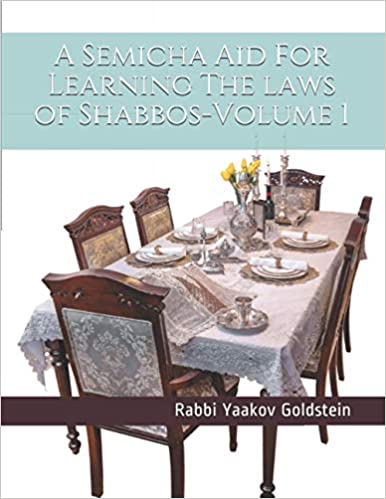
To purchase this Sefer, click here
2. The Rabbinically forbidden forms of cooking:
Cooking on sun heated objects:[1] Furthermore, even [cooking] with [an item that was] heated from the sun, such as [cooking] on a cloth that got hot in the sun, is forbidden due to a decree [that if this were to be allowed then] one may come [to also cook on an item that] was heated through fire, as one who witnesses [a person cooking on such a cloth] thinks that the cloth was heated with fire.
Rolling eggs on sand:[2] Thus it is forbidden to roll [the egg] on sand, and road dust which have become hot from the [rays of] the sun. [See Q&A 1]
Cooking in hot springs on and before Shabbos:[3] One who cooks in the hot springs of Tiveria is exempt [from liability], because they are comparable to an item heated by the sun. Nevertheless, it is Rabbinically forbidden [to cook in it] even if the food is positioned on top of [the spring] and thus cooks from above.
Heating uncooked foods and liquids on Shabbos to less than Yad Soledes Bo in an area where it can reach Yad Soledes: Is Rabbinically forbidden. See Halacha 4 for the full elaboration on this subject.
| Summary- The following forms of cooking are Rabbinically prohibited: 1) To cook, bake, or do any of the above-mentioned activities over an object heated by the sun.[4] 2) To cook, bake or do any of the above-mentioned activities over hot springs.[5] 3) To enter a food that may not be heated to the point of Yad Soledes into an area where the food can become heated to that point, even if one plans to remove it before it becomes Yad Soledes.[6]
Q&A What form of cooking is electric heat considered?[7] It is considered like a substance heated through fire and is hence Biblcially forbidden due to Derech Bishul. Although some have sided that it is only Rabbinically forbidden.[8] Microwave:[9] The heat of a microwave is considered to be like the heat of an object heated by the sun which is only Rabbinically forbidden. However, some Poskim[10] rule it is considered like the heat of an actual fire and is Biblically forbidden.[11] This matter contains ramifications as will be explained in their relevant areas. |
______________________________
[1] Admur 318:7; Michaber 318:3
[2] Admur ibid; M”A 318; M”B 318:20
[3] Admur 318:8
[4] Admur 318:7
[5] Admur 318:8
[6] Admur 318:24
[7] See Minchas Shlomo 2:19; Piskeiy Teshuvos 277:4 footnote 28; Shabbos Kehalacha Vol. 1 p. 25; Beis Yitzchak 1:120; Pnei Meivin 56; Tzafnas Paneiach 273:3; Nishmas Shabbos 77; Levushei Mordechai 1:47; Mahrsham 2:246 [lenient]; Achiezer 3:60 [Biblical]; Eretz Tzevi 1:62; Chazon Ish 50:9; Zer Hashulchan 87:6
[8] This has been discussed amongst the Poskim and their final ruling is that it is considered like heat of a fire. [Shabbos Kehalacha Vol. 1 p. 25]
[9] Rav SZ”A in SSH”K 1 footnote 12; Shabbos Kehalacha Vol. 1 p. 181 and 261
[10] Igros Moshe 3:52
[11] Background: There seems to be a dispute between Reb Moshe Feinstein and Reb Shlomo Zalman Aurbach on this subject. Reb moshe contends that regarding Shabbos a microwave is considered cooking and Reb Shlomo disagrees. The Gemara Shabbos 39a records a machlokes about cooking in the sun (bishul b’chama). Rabbi Yose maintains that one is chayav for cooking in the sun (just like cooking on a fire), while the Chachamim are of the opinion that bishul b’chama is patur. Rashi Shabbos 39a s.v d’shari explains the opinion of the Chachamim as follows: bishul b’chama is patur because it is not the normal way to cook. R’ Moshe Feinstein Vol. 3, Responsa 52 extrapolates from this Rashi that had bishul b’chama been a normal way of cooking, it would be no different from cooking on a fire. In other words, bishul min hatorah can be accomplished even without an actual fire and this is why cooking in a microwave oven is considered bishul d’oraysa (since it is normal to cook in a microwave oven). However, R’ Shlomo Zalman Shemiras Shabbos 1 note 12 argues that Rashi meant that, by definition, cooking with anything other than a real fire (such as the sun or a microwave oven) is not bishul min hatorah. [Writtn by a student in our Semicha program]


Leave A Comment?
You must be logged in to post a comment.